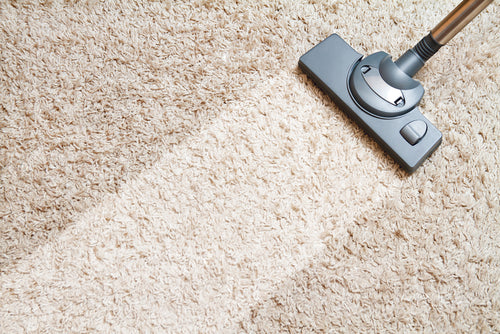
Jun 13 , 2017
How to Improve the Air Quality in an Older Home
Air quality is not just an outdoor issue. Indoor air can be polluted by radon, dust mites, chemicals from cleaners, mold, formaldehyde, lead, pet dander, and fire retardants, or they can be tracked into the house. Exposure to indoor air pollutants can lead to health issuessuch as irritated throats, eyes, fatigue, dizziness, and headaches.
Older homes are especially susceptible to these irritants. The good news is that, unlike outdoor pollution, by understanding what is going on with your house, you can control the air quality in your home, improve your comfort, and reduce your risk of exposure to health issues.
Cleaning
Keeping the house clean is the easiest way to reduce air pollution. Chemicals can accumulate in the dust of your house for decades. Vacuuming and mopping are great ways to pick up the toxins around the house. You can optimize your cleaning efforts by using microfiber mops, cleaning the floors three times a week, using a vacuum with a HEPA filter, and rotating brushes. Walls, furniture, and carpet edges are areas to pay attention to, but dont forget to dust ceiling fans and hard to reach areas like the top of the fridge!
Tracking in Dirt
The easiest way to keep air pollution out of the house is by not letting it in at all. Keep floor mats at all doors and ask people to remove their shoes before entering the house so outdoor pollutants wont be tracked into the house. Many people use indoor slippers for around the house to keep their feet warm and pollutants out!
Reducing Moisture
Reducing the amount of moisture in the house allows you to keep allergens under control. Dehumidifiers reduce the stickiness you may feel at your home. Air conditioners can help remove pollen from the home. Other solutions like opening exhaust fans over appliances, venting clothes dryers to the outside, fixing leaky plumbing, and emptying drip pans ensure the moisture in your house is ideal. Opening the windows to let in fresh air and using ceiling fans aid circulation and allow vapors, grease, and smoke to escape your home.
For those of you with green thumbs, it is also important to pay attention to not overwater your houseplants. The excess water can impact the moisture levels in your house. Another benefit for horticultural fans is knowing that many indoor houseplants are great natural air quality filters.
Prohibit Smoking
A way to boost your home's air quality is by making your home a smoke-free zone. Cigarette smoke contains more than 4,000 chemicals. If quitting is not a solution, make sure to only smoke outside. Not just cigarette smoke but candles and fire burning can contribute to the smoke chemicals in your home. Once you commit to a smoke-free house, use air purifiers to reduce the smell of cigarettes in your home.
Minimize the Use of Scented Cleaning Products
Scents can cause serious air pollution as well. The synthetic lemon or pine smells from laundry detergents, fabric softeners, and cleaning products may emit gases and harmful vapors into the air. One study revealed that a plug-in air freshener emitted seven toxic compounds! The only word required on cleaning labels is fragrance, which is scary because consumers have no knowledge of the chemicals contained within.
To avoid these harmful vapors, invest in unscented (fragrance-free) cleaning products, make your own cleaners (using lemon slices and baking soda), and stop using aerosol sprays. You can freshen your home by simmering a pot of cinnamon and cloves or relying on pure essential oils as natural diffusers.
Blinds and Curtains
As you look to remodel your older home, be sure to keep air quality in mind. Installing blinds instead of curtains attracts less dust. Remember that hard surface floors are easier to clean than carpets. Invest in UV light technology which can kill allergens inside of your air ducts. Ensure your air filters have a high Minimum Efficiency Reporting Value (MERV) so minimal dust particles can pass through your filters. When replacing HVAC systems, consider investing in a plasma generator because they aid with killing mold spores.
Final Thoughts
There are lots of things that can be done to improve the air quality and reduce the risk of health issues in your home. Cleaning regularly, removing shoes, reducing smoke, and using dehumidifiers and ventilation all aid with air pollution. Frequently replace your air filters, install carbon monoxide detectors, groom your pet regularly to keep pet dander from floating around, and clean your HVAC ducts. The impact of poor air quality is scary, but it is easy to implement many of these quick fixes in your home today!


